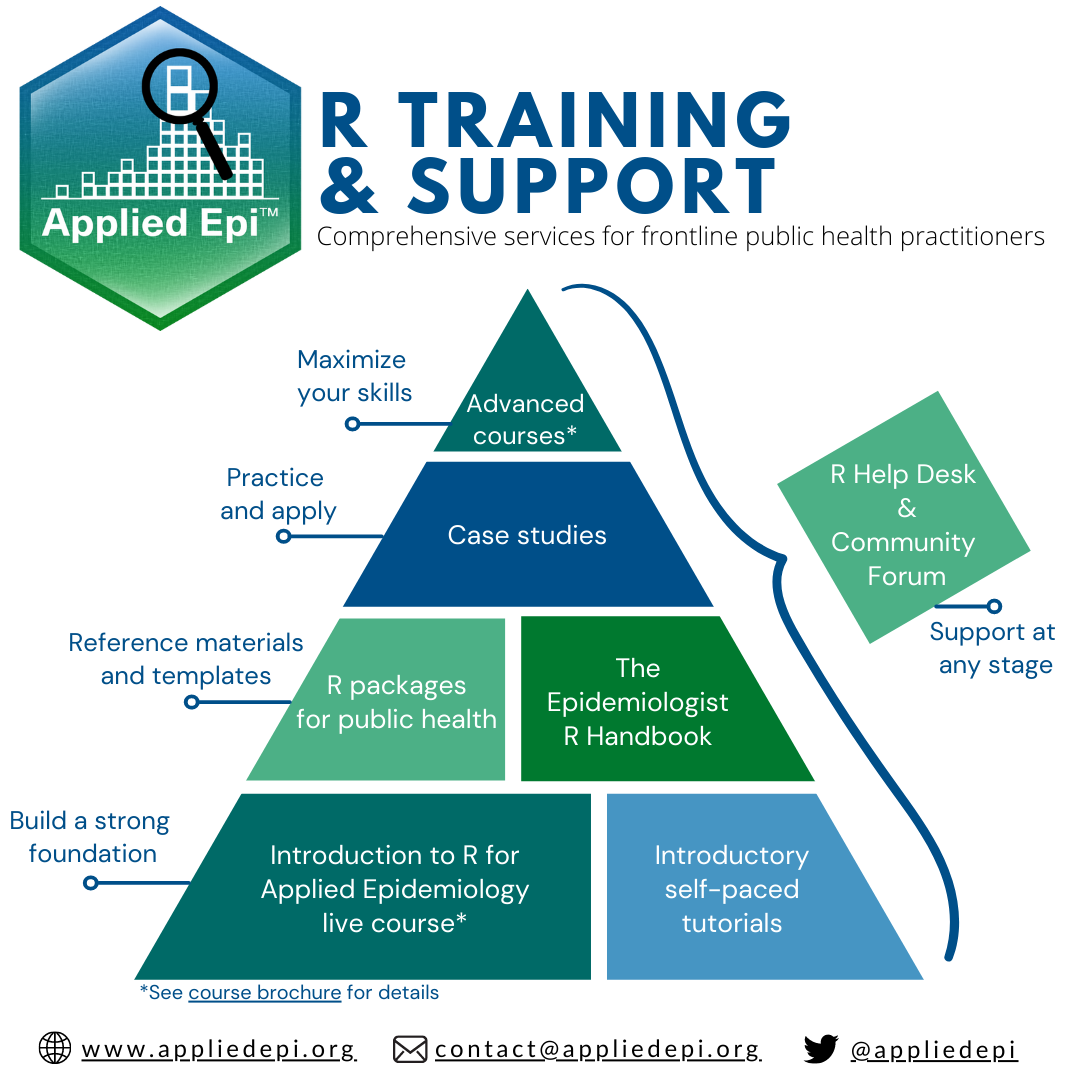Educational approach
Practicality, accessibility, comprehensiveness
Educational approach
Outline

Principles
Applied Epi training materials are constructed with the following principles:
We are focused on frontline practitioners
Our efforts are focused on improving the lives of ground-level public health practitioners and applied epidemiologists - the vast workforce at local and national health agencies, NGOs, and healthcare systems.We believe that most actionable public health intelligence derives from the frontline workforce. They have the most to benefit from R adoption, and their needs have historically been underserved by R developers.Therefore, our course content focus on the tasks, visualizations, and analyses most common in practical, applied epidemiology and public health.Our team consists of experts who have extensive experience with frontline public health, and we leverage our skills and history when designing and delivering our content.
We are curators on your behalf
We have leveraged our decades of experience using R and working in frontline epidemiology in order to distill the vast universe of R packages and functions into the most easy and relevant approaches for beginners in public health practice.R is notorious for having many ways to do the same thing. We’ve reviewed the options, and have chosen the easiest and best ones for you.
Thoughtful and deliberate curriculum
To facilitate learning and reduce mental load, we are intentional with our vocabulary, choice of terms, methodological consistency, and the progression of skills that we introduce.
Building confidence to “tinker”
The best (perhaps only) way to learn a new language like R is to “tinker”, or to experiment and learn via trial and error. We build this into our courses by progressively encouraging you to write original code and understand R documentation and error messages.
Setting you up to actually use R
Some R courses have students work only in a virtual R environment (it is less hassle for instructors).In our live courses, we embrace the challenges of setting up R on your computer. This means dedicating time to work through the complications posed by employer security restrictions, other software such as OneDrive, VPNs, package downloads, and previous R installations.Our self-paced tutorials are intended for larger audiences and therefore cannot include the personal attention to troubleshoot R setup on your computer. Nevertheless, we focus on building coding skills within the tutorial, address R setup when possible, and offer “office hours” sessions for assistance.